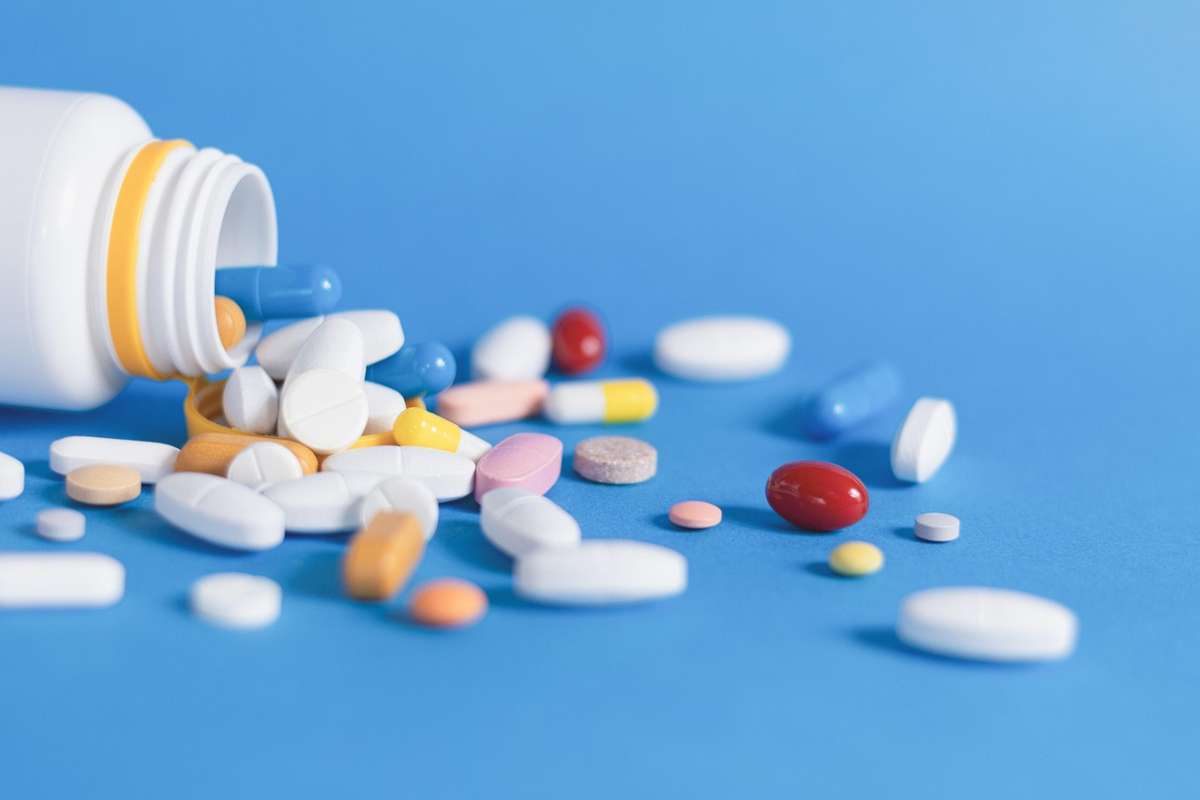Just because you are experiencing hair loss doesn’t mean you should jump straight into scheduling a hair transplant. There are a handful of effective non-surgical hair growth treatments available that can help stop and reverse hair loss.
Among the various medical treatments for hair loss is a vitamin known as biotin.
Biotin is a vitamin that is vital in helping the body breakdown various substances such as fats and carbohydrates. It helps your body convert food into energy as well as helps with the health of your hair, skin and nails.
So before you decide that your only option to treat your hair loss is a hair transplant, let’s take a look at biotin – What it is, how it can help treat hair loss, how much you should take, and what sort of results you can expect from this treatment.
What is Biotin?
Biotin, or Vitamin B7 as it’s also known, is one of the B-vitamins that is essential to our body. It’s a water-soluble vitamin which means that the body doesn’t store it so you need to obtain it through diet or supplements daily. It is vital in various functions within the body.
As we mentioned briefly above, biotin helps your body convert fat and carbs into energy, and to help promote energy production. It provides a vital role in supporting the enzymes associated with your metabolism.
In addition to helping with your metabolism and energy production, Biotin is also important for the synthesis of healthy skin hair and nails. If a person has a biotin deficiency, this can cause skin disorders such as seborrheic dermatitis, or cradle cap, brittle nails, or thin hair. By ensuring you are getting the proper amount of biotin, you can help reduce the flakiness of your scalp as well as the splitting or cracking of weak nails but also prevent hair loss.
What Might Cause a Biotin Deficiency?
Some people may develop a biotin deficiency for a variety of reasons, including pregnancy, smoking, taking medications to treat epilepsy, consuming excessive raw egg whites, intense physical activity, metabolic disorders, and gastrointestinal difficulties. While the symptoms of biotin deficiency include tiredness, confusion, numbness in fingers and toes, rashes, and depression, the most commonly recognized sign is hair loss.
How Does Biotin Treat Hair Loss?
Biotin works to treat hair loss by improving your body’s keratin infrastructure, which is the basic protein that makes up your hair, skin and nails.
Without biotin your hair would suffer in overall quantity, texture, and strength. It is a co-enzyme necessary for the synthesis of fatty acids, amino acids and aids in gluconeogenesis. Amino acids make up protein, which is used to produce keratin, and hair shafts are composed primarily of keratin. Without biotin, hair follicles are weak and lose the ability to regrow new hair.
In most cases, people who do NOT have a biotin deficiency may not find huge benefits from using Biotin to help with their hair loss. As with other water soluble vitamins, as long as you take the recommended amount through a balanced diet, any excess vitamins will be passed through your system via the kidneys and will not be harmful.
It’s always important to sit down with your doctor, or hair loss specialist, to determine the correct course of action based on your situation. The majority of hair loss cases are due to genetics, which may not show improvement with simple biotin treatments, so it’s best to consult with a professional before spending time and money on vitamins and treatment methods that may not work in the end.
How Much Biotin Should You Take for Hair Loss?
If you’ve spoken to your doctor, or hair loss specialist, and it has been determined that you may be a good candidate for biotin treatment, or suffer from a biotin deficiency, then it is important to know how much biotin you should actively take in order to see results.
We do not recommend just buying a bunch of biotin pills, or changing your diet to include biotin-rich foods, without first consulting with your doctor.
Two factors should be considered when determining an appropriate dosage of biotin for the purpose of treating hair loss:
- Your age
- Your current health condition
Recently, biotin supplements have gained media attention due reports of false negative lab results in a patient who suffered from a heart attack. We know that excessive biotin intake can interfere with lab tests for troponin, a cardiac test, to help determine if you are having a heart attack. Therefore, dosages over 5,000-10,000 mcg are not recommended and if you are having chest pain, you should report ANY and ALL supplements you are taking to your doctor.
Likewise, excessive biotin intake can interfere with thyroid tests. Biotin does NOT interfere with the body’s thyroid function or any thyroid medications you may be taking, ONLY the laboratory test for your thyroid hormone meaning the lab results may not be accurate. It is OK for patient with hypo/hyperthyroid to take biotin supplements, but talk to your endocrinologist about a time frame for holding the biotin before you are scheduled for blood work; usually a week or 2 is sufficient.
There is no set standard for the dosage of biotin vitamins, however, the Institute of Medicine suggests these limits.
Biotin Intake Recommendations
- 30 mcg (micrograms) for adults over 18 years of age
- 25 mcg for young adults ages 14 to 18
- 20 mcg for children ages 9 to 13
- 12 mcg for children ages 4 to 8
- 8 mcg for children ages 1 to 3
- 7 mcg for children under 12 months old
- 35 mcg for pregnant women
To make matters more confusing, most hair & nail supplements have dosages of 2,500 mcg or more. Since biotin is a water-soluble vitamin, toxicity is highly unlikely if you exceed the dosage recommendations in the chart above, but it’s important to know these recommended limits.
In order to find a safe and effective dosage to treat your hair loss, you should speak with a hair restoration expert, like Dr. Krejci. Dr. Krejci can put you on a path to a thicker head of hair by recommending the correct dosage of biotin and closely monitoring the effects of your treatment.
How Should You Take Biotin?
When you think of hair loss and medicinal treatments, most people think that some sort of topical cream or shampoo would be the most effect way to administer the medicine. It makes sense that applying medication directly to the affected area would be most effective, but when it comes to biotin, that’s not the case.
Ingesting biotin orally has shown to have the most effective impact and shows the fastest results when it comes to hair growth. You can also combine biotin with other B vitamins and vitamin D, greatly strengthening hair health, along with overall health.
While many people choose to take biotin pills, others are able to alter their diet to ensure they ingest enough biotin with foods such as: bananas, whole grains, cauliflower, mushrooms, and soybeans. The foods with the highest biotin levels are: peanuts, cooked eggs, raw egg yolks, liver, Swiss chard, and certain vegetables.
Depending on if you have a biotin deficiency, or you’re just looking to help treat hair loss symptoms using biotin, your doctor can recommend the proper course of action. A biotin deficiency may require a larger amount of biotin to be introduced into the body in order to help bring up those vitamin levels, where as in people without a true biotin deficiency, altering your diet to include foods with more biotin in them, may be all you need.
Does Biotin for Hair Loss Actually Work?
Research is not conclusive regarding biotin as a supplement aiding in hair loss. The Journal of the American Academy of Dermatology states that biotin can in fact increase hair growth to its normal rate if patients consume low biotin doses.
However, the National Institutes of Health says that the evidence that biotin affects hair loss is not strong enough. In addition, the Natural Medicines Comprehensive Database states there is not enough evidence to support the claim that biotin can decrease hair loss.
That being said, other research has shown that biotin is an effective solution for hair loss. This article published by the Cambridge University Press notes that biotin is very important to hair growth. A biotin deficiency may result in your body incorrectly metabolizing fatty acids, which also may lead to thinning hair. The U.S. Library of Medicine suggests that biotin is likely effective for preventing and treating biotin deficiency, which can cause your hair to thin.
While health experts may not agree on the uses of biotin, thousands of people have testified that biotin decreased or ended their hair loss. The “User Reviews and Ratings” section for biotin on WebMD shows numerous cases where people found success in using biotin to strengthen and regrow hair. Despite the current controversy, we continue to offer it to patients as part of an effective hair growth treatment. When used properly, biotin plays an important role in your treatment plan.
As we always say though, not all hair loss treatments work for everyone, which is why it’s extremely important to talk with a hair loss specialist to determine what the best course of action is for you. Hair loss can happen for a variety of different reasons, so getting to the root cause before taking action is the smartest thing you can do.
If you are experiencing hair loss, contact the Limmer Hair Transplant Center to discuss biotin as a possible supplement to your wellness plan. We can provide you with the most effective dose of biotin for your specific hair. We will also closely monitor your scalp to make sure the treatment is working efficiently.







